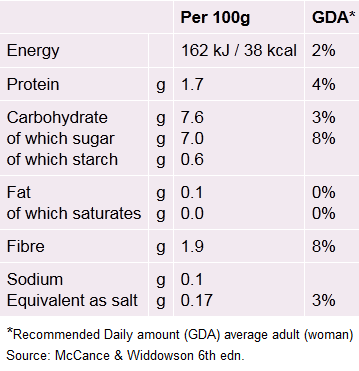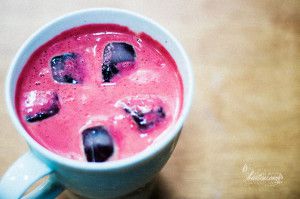Eczema is a term used to refer a group of skin diseases where skin becomes inflamed or irritated. In some languages, eczema also called as dermatitis, while in other languages dermatitis known for acute skin disease and eczema for chronic skin disease. A chronic disease is a condition which lasts for longer time, more than 3 months.
As mentioned above eczema is not a single skin disease. There are many types of eczema and most common one is Atopic Eczema. Let’s list all of them here.
- Atopic Eczema
- Irritant dermatitis
- Allergic contact dermatitis
- Stasis dermatitis
- Fungal infections
- Scabies
- Dyshidrotic eczema
- Lichen simplex chronicus
- Nummular eczema
- Dry Skin eczema
- Seborrheic eczema
Here in this article we will be considering the most common type of eczema i.e.; Atopic eczema.
According to National Institutes of Health, in US 31.6 million have eczema symptoms and 17.8 million people met with AD (Atopic dermatitis) symptoms. Most of the cases are undertreated. This particular skin disease has been recognized as major health problem worldwide, one-third of world population has been affected with this disease. (source)
According to Mehmet Oz, MD, Cardiology, about 60% of children with eczema will get it before age 1, and at least 80% will develop it before age 5. Though some child may outgrow it by their tenth birthday, in most people symptoms will show on and off throughout their life time.
Many children who got affected by Atopic Eczema will develop asthma after few months or years. This is known as Atopic March. Scientist says that this is caused due to advance stages of eczema. The substance circulated through affected skin part triggers asthmatic symptoms. (source)
Symptoms of Atopic Eczema
As mentioned above atopic eczema is a chronic disease which last for longer time. So, symptoms are present all the time anyway before flare-up (red bumps) you consider few things as symptoms. They are listed below.
- Skin becomes dry.
- Because of dryness skin breaks at different places, mostly at feet.
- It looks as if your skin dried up completely.
- Itching sensation triggers in different parts of the body.
- Itching usually worse at night.
- When you scratch that particular skin part become thick and form patches.
- And soon you may see red and inflamed symptoms.
Patches or red bumps may occur at any part of the body any way they most concentrate on ankles, feet, wrist, back of the knees and feet in adults. In infants, you may see red bumps on face and scalp. Among darker skinned people atopic eczema affects pigmentation, leaving the affected area in darker or lighter color patches. Among fair skinned people initially red bumps starts and slowly with repeated scratching they turn to brown colored patches.
And when you ignore symptoms listed above or if you already those symptoms then you will have blisters appeared over your skin. These blisters with time they ooze and invite bacteria to invade making it more badly.
Avoid these things if you see eczema symptoms
- Don’t take hot showers.
- Apply moisturizer after bath.
- Avoid stress.
- In winter stay away from dry air, wrap up with a cloth and wear gloves.
- Don’t smoke.
- Detergents with fragrance ingredients as they may irritate your skin.
What Causes Eczema or Atopic Eczema?
Unfortunately the exact cause for eczema is unknown. Anyway after some research in 2006 scientist confirmed that gene causes dry skin, scaly skin and predisposes them to eczema. (source)
Generally atopic eczema is caused when your skin’s outer surface lose its ability to lock the moisturizer. This makes skin dry and leaves the skin itchy. This scratching triggers to more itching and leading a way for bacteria to enter and affect your skin.
And in some people this may be triggered by any contact with allergic substance, leading to skin allergy. Even stress may be the cause for itchy skin.
Hereditary is most common factor for this disease, says scientist. If one among the parents has skin allergy or asthma then there is 60% of chance of eczema in children. Unlucky if both parents have this skin disease then chance of child getting it is 80%.
Unfortunately there is no right away cure for eczema. You need to follow-up regular tips to reduce its effect.
How is eczema diagnosed?
There is no way to test your skin and tell that this is eczema, when you visit your dermatologist may ask you few questions which may include question regarding your parents, your skin condition and after examining your skin the doctor will confirm you if it’s eczema.
How is eczema treated?
Well the mere goal of treatment is not to cure or remove eczema because there is no such way to remove it completely from your body (at-least till date), so the treatment or cure is to reduce itching and flare-ups on your skin which is making you uncomfortable.
This includes creams to keep your skin moist, it’s advised to apply moisturizing cream when your skin is damp (after bath) or after washing the affected part. Just pat dry with a towel and apply moisturizing cream.
If eczema is spreading to other parts of the body then you may be suggested to apply antibiotic cream to kill bacteria which are working to spread.
In 2006 FDA approved two topical eczema drugs (Elidel and Protopic) for treating eczema anyway they come with FDA boxed warning for doctors because of the concerns over possible cancer. These drugs are for a short period, longer medication with these drugs has been avoided, anyway if patient see no recover that doctors may prescribe this medicine after sometime. (source)
Overview
Eczema is a collection of skin diseases, atopic eczema is one such common eczema found in most people. Symptoms are dry itchy skin with patches, red bumps in come cases. Main cause for eczema is not known but most scientist say that hereditary is common cause. There is no treatment anyway you’re advised to apply moisturizer, ointments prescribed by doctor, follow healthy food to maintain skin barrier. Avoid things which can stimulate itching sensation like hot bath, contact with allergic substance, dry air etc…
Eczema Pictures
Image source: 1, 2, 3, 4, 5, 6
References
- http://www.ncbi.nlm.nih.gov/pubmed/17498413
- http://www.fda.gov/Drugs/DrugSafety/PostmarketDrugSafetyInformationforPatientsandProviders/ucm153941.htm
- http://www.medicalnewstoday.com/articles/14417.php
- http://www.webmd.com/skin-problems-and-treatments/guide/atopic-dermatitis-eczema
- http://en.wikipedia.org/wiki/Dermatitis
- http://www.medicalnewstoday.com/releases/150766.php

 Beetroot contains rich amount of folic acid, manganese, Vitamin A, C and K. Minerals like calcium, iron, potassium, copper, sulphur, silica and chlorine are also found in Beets. Beet Juice is rich in nitrates and antioxidant which is improve blood flow and reduces blood pressure. Other nutrient things include amino acids (D amino acids, alpha amino acids), flavonoids (enhance the power of Vitamin C and protect blood vessels from leakage) and
Beetroot contains rich amount of folic acid, manganese, Vitamin A, C and K. Minerals like calcium, iron, potassium, copper, sulphur, silica and chlorine are also found in Beets. Beet Juice is rich in nitrates and antioxidant which is improve blood flow and reduces blood pressure. Other nutrient things include amino acids (D amino acids, alpha amino acids), flavonoids (enhance the power of Vitamin C and protect blood vessels from leakage) and 